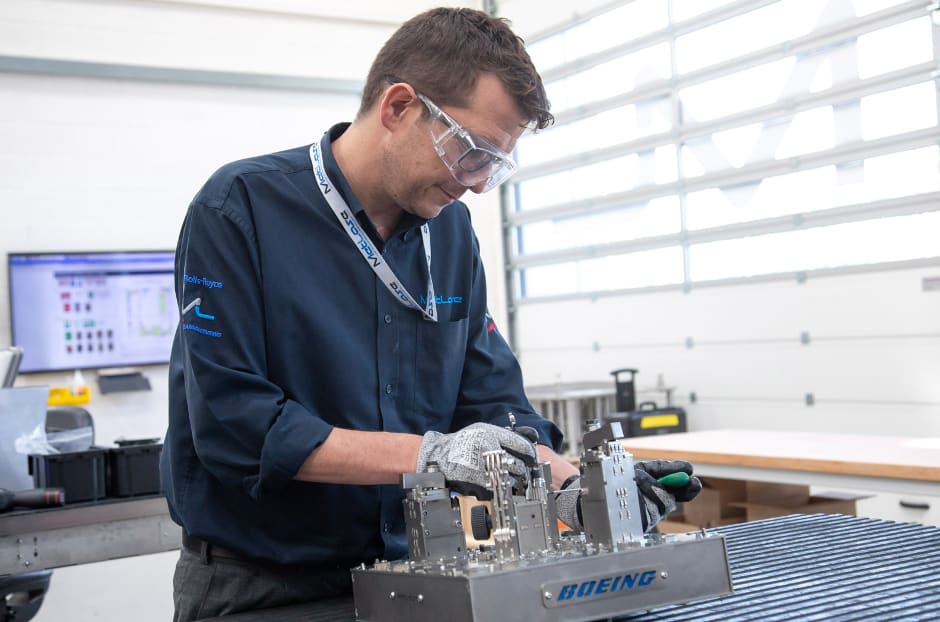
The company, a joint venture between Rolls-Royce and Unipart, will use its 3D design capabilities, high precision laser-cutting technology and patented assembly and joining systems to create lightweight and optimised machining fixtures that will hold 11 different castings used in the production of actuation system components for the 737, 767 and 777 aircraft.
This contract with Boeing follows new business wins that include strategic partnerships with blue chip companies in sectors including automotive, aerospace and energy.
Steve Dunn, managing director at MetLase said: “The long-term agreement with Boeing marks a new chapter for our business, as it will enable us to become an integral part of its future plans to develop intelligent and connected fixturing and tooling solutions.
“Our unique approach and technology will see us produce optimised fixtures that are lighter than traditional alternatives, can be produced in weeks as opposed to months and, importantly, through our design iteration service, can be continually improved to deliver the best possible performance.
“This contract is an ideal way to celebrate our third birthday and is also excellent news for the region, with two other local companies – Maher Ltd and Nikken – also being awarded contracts.
“Strategic supply chain relationships are very important to Boeing and, from the outset, we have been working closely with other suppliers to build partnerships and explore ways where we can harness our collective expertise to offer new solutions.”
MetLase, which employs 25 people at its 12,500 sq ft facility at the AMP Technology Centre, is due to start delivering the first fixtures as part of a three-year contract.
“Our standardised design and development process and unique joining and assembly techniques mean we only use the exact amount of material needed, ensuring we can deliver fixtures quicker and more cost effectively than our rivals,” said Richard Gould, sales manager at MetLase.
“This is the first stage of what Boeing wanted. The next phase is to develop intelligent fixtures that provide real time data on performance and will either alert engineers if an issue arises or correct it automatically.”
He concluded: “Industry 4.0, big data and smart manufacturing is crucial to the success of global manufacturing. Our aim is to create an intelligent fixturing system that tells the next production stage in the process exactly what has happened before.”











IET sounds warning on AI doll trend
I agree that we need to reduce cooling water demand for servers. And yes, generative AI consumes a large amount. But what about BitCoins? Their...